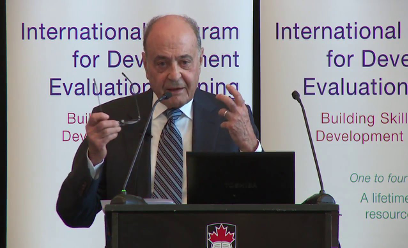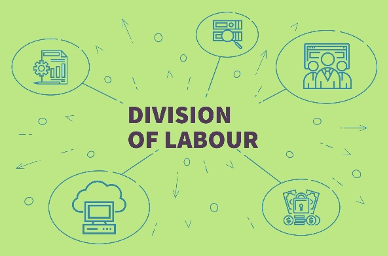
I am Robert Picciotto, University of Auckland, New Zealand contributing to this week’s USA Labor Day reflections.
How do you answer the question: “what do you do for a living?” The AEA website puts forward suggested responses: evaluators help organizations improve their public image; ascertain whether what they do is effective; help generate data for their decision making; etc. No explicit reference to protecting the public interest, speaking truth to power, or making authority responsible is offered.
““It is not possible for power to be exercised without knowledge, and it is impossible for knowledge not to engender power”
–Michel Foucault

Lancelotlachartre | Dreamstime.com
This is not surprising: evaluation has been captured. For triumphant capitalism to extract the surplus value generated by the division of labor in the market economy, control over knowledge occupations is desirable. This includes evaluation. Whereas at the creation of the discipline, evaluation operated at arm’s length from vested interests, decision makers are now in charge and evaluation has become a market good.
Given fee dependence, external evaluation lacks autonomy. By paying the piper, decision makers call the evaluation tune. They select the evaluator through competitive bidding, use contracting to manage the evaluation process, and exercise influence over how evaluations are framed, what questions are addressed and what methods are used through exacting and detailed terms of reference.
Yet, power can be resisted: we are not trapped. We can embrace a professional ethos that defines evaluation as a vocation dedicated to social justice and respect for nature. We can adopt a principles-based, democratic evaluation model that empowers stakeholders through deliberative approaches that amplify the voice of disadvantaged groups, protect informants’ anonymity; create a level playing field for the interpretation of results, etc.
Equally, we can resist contractual arrangements that negate evaluation independence. We can reject terms of reference that are socially or culturally insensitive. We can avoid conflicts of interest by securing independent funding, e.g. from like-minded high net worth individuals, foundations, crowd funding, etc. We can mobilize adversary evaluation under the aegis of a supreme authority representative of the citizenry.
Thus, we can take advantage of the separation of powers embedded in public, private and voluntary organizations. Evaluation of government programs can be carried out on behalf of the legislative or judicial branch. There is no reason why aid recipients should not be helped to evaluate the performance of aid agencies or why indigenous evaluators should not be empowered to assess the policies that impact on their communities.
Finally, by liberating evaluation through collective action and professionalization within and across borders we can move up the occupational ladder, enhance our influence, control our own work, and set reasonable fees for our services, just as physicians, lawyers and auditors do. If not now when? If not us, who?
The American Evaluation Association is celebrating Labor Day Week in Evaluation. The contributions this week explore the concept of labor from different perspective and in relation to evaluation. Do you have questions, concerns, kudos, or content to extend this aea365 contribution? Please add them in the comments section for this post on the aea365 webpage so that we may enrich our community of practice. Would you like to submit an aea365 Tip? Please send a note of interest to aea365@eval.org . aea365 is sponsored by the American Evaluation Association and provides a Tip-a-Day by and for evaluators.

Speaking TRUTH to POWER… I just love this… “Yet, power can be resisted: we are not trapped. We can embrace a professional ethos that defines evaluation as a vocation dedicated to social justice and respect for nature. We can adopt a principles-based, democratic evaluation model that empowers stakeholders through deliberative approaches that amplify the voice of disadvantaged groups, protect informants’ anonymity; create a level playing field for the interpretation of results, etc.”